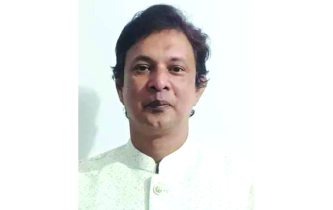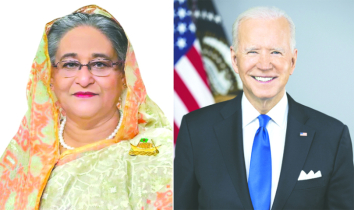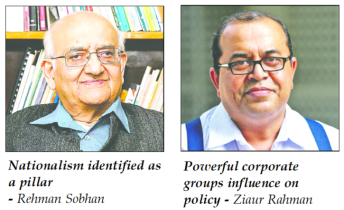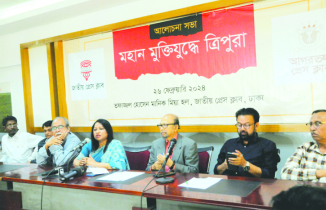
In the intricate web of human behavior and societal dynamics, certain patterns emerge, revealing a nexus of forces that shape discourse and action. This nexus, characterized by denial, defamation, deflection, and destruction, constitutes a potent amalgamation of strategies employed in various realms, from personal interactions to geopolitical conflicts. Each element plays a distinct yet interconnected role, influencing perceptions, narratives, and outcomes. Understanding the dynamics of this nexus is crucial for navigating complex socio-political landscapes and fostering constructive dialogue amidst challenges and conflicts. In the intricate tapestry of politics and governance, the themes of denial, defamation, deflection, and destruction weave together, shaping the landscape of societies and influencing their socioeconomic trajectories. These phenomena manifest in various forms, impacting not only the political sphere but also the broader fabric of democracy and socioeconomic structures.
In the context of Bangladesh's political landscape, the utilization of strategies such as denial, defamation, deflection, and destruction has been a recurrent theme, often wielded as tools to manipulate public perception, suppress dissent, and maintain power dynamics. Examining these strategies through a critical lens offers insights into the complexities of governance, the dynamics of power, and the challenges of democratic consolidation in the country. Denial serves as a defense mechanism employed by political actors to shield themselves from uncomfortable truths or realities. Whether it's denying the existence of systemic issues such as poverty or inequality, or dismissing scientific evidence on pressing matters like climate change, denial obstructs meaningful progress and hampers efforts towards addressing critical issues. In a democratic context, denial can undermine the trust between citizens and their elected representatives, eroding the foundation of accountability essential for a functioning democracy.
Defamition is a potent weapon wielded by political rivals and vested interests to tarnish the reputation of opponents or dissenting voices. False accusations, smear campaigns, and character assassinations are employed to discredit individuals or groups, diverting attention from substantive issues and fostering an environment of distrust and hostility. In democratic systems, defamation not only damages the credibility of targeted individuals but also undermines the integrity of electoral processes and the broader democratic discourse. Deflection is a common strategy used by politicians to evade accountability and redirect attention away from contentious issues or failures in governance. Through deflection, political leaders shift blame onto external factors, scapegoats, or opposing parties, deflecting scrutiny and criticism from themselves. While deflection may offer temporary respite from public scrutiny, it ultimately erodes trust in political institutions and impedes efforts towards genuine reform and progress.
Destroy , whether in the form of physical destruction or the dismantling of democratic norms and institutions, has profound socioeconomic implications. From the destruction of infrastructure in conflict zones to the erosion of democratic institutions through authoritarianism or corruption, the consequences are far-reaching and enduring. Societies ravaged by destruction face immense challenges in rebuilding trust, fostering stability, and addressing the socioeconomic inequalities exacerbated by upheaval.
The dynamics of denial, defamation, deflection, and destruction in politics and governance have significant ramifications for democracy and socioeconomic well-being. Addressing these challenges requires a concerted effort to promote transparency, accountability, and integrity in political processes, as well as a commitment to fostering resilience and inclusivity in the face of adversity. Only through collective action and a steadfast commitment to democratic principles can societies navigate the complexities of political discourse and build a more equitable and prosperous future for all. Denial is the refusal to accept or acknowledge the truth or reality of a situation. It can manifest as ignoring evidence or minimizing the significance of an issue.
Denial is a psychological defense mechanism where individuals refuse to acknowledge or accept a painful truth or reality. It serves as a coping mechanism to protect oneself from uncomfortable emotions, situations, or facts. While denial can provide temporary relief, it often prevents individuals from confronting and addressing underlying issues, leading to prolonged psychological distress and hindering personal growth. In therapy and counseling, overcoming denial is an essential step towards healing and self-awareness. It requires courage and willingness to face reality in order to move forward and make positive changes in one's life. Defame means to damage someone's reputation through false or malicious statements. It involves making derogatory remarks or spreading rumors about someone with the intention of harming their character.
Defamation is a serious legal and ethical issue involving the deliberate spreading of false information to harm someone's reputation. It can have devastating consequences for individuals, tarnishing their character, damaging relationships, and impacting their livelihoods. In a world where information spreads rapidly through various media channels, the repercussions of defamation can be widespread and long-lasting. Therefore, it's crucial to exercise caution and integrity in our communications, refraining from engaging in or perpetuating defamatory behavior. Upholding truth and fairness in our interactions is essential for fostering trust, respect, and a healthy society.
To designate something is to appoint, assign, or specify it for a particular purpose or role.To designate is to assign or allocate something for a specific purpose or role. Whether it's designating funds for a project, assigning tasks to team members, or specifying areas for development, the act of designation plays a vital role in organization and planning. However, it's important to approach designation with careful consideration and clarity to ensure that responsibilities are clearly defined and resources are used effectively. By thoughtfully designating roles and resources, we can enhance efficiency, foster collaboration, and achieve our goals with purpose and direction.
Deflect means to cause something to change direction, or to redirect attention or criticism away from oneself or a particular topic. Deflection is a common tactic used in communication to redirect attention or criticism away from oneself or a particular topic. While occasionally employed as a means of avoiding conflict or discomfort, habitual deflection can hinder genuine communication and accountability. When individuals consistently deflect responsibility or fail to address issues directly, it can erode trust and impede meaningful dialogue. It's important to recognize when deflection is being used and to encourage open and honest communication in order to address concerns and foster healthy relationships.
Destroy means to cause severe damage or ruin something completely, rendering it unusable or ineffective.
Destroying something involves causing severe damage or rendering it completely unusable. Whether it's physical objects, relationships, or trust, the consequences of destruction can be profound and lasting. While destruction may sometimes be necessary for growth or change, it's crucial to approach it with caution and consideration for the impact it may have on others. Destruction can lead to loss, pain, and upheaval, so it's important to weigh the potential consequences carefully before taking action. In moments of anger or frustration, it's often wiser to seek constructive solutions rather than resorting to destruction, as the aftermath of destruction can be difficult to repair.
In the rich tapestry of Bangladesh's socio-economic fabric, the threads of denial, defamation, and deflection are woven into the intricate patterns of power dynamics, societal relations, and economic progress. These strategies, often wielded by various stakeholders in the political and social spheres, have profound implications for the country's development trajectory, the well-being of its citizens, and the overall stability of its institutions.
Denial, as a tactic, serves to obfuscate truths, obscure accountability, and perpetuate narratives that serve the interests of those in positions of authority. In the realm of socioeconomics, denial can manifest in the form of downplaying economic disparities, dismissing grievances of marginalized communities, or ignoring systemic injustices that hinder equitable access to resources and opportunities. This denial stifles meaningful discourse, impedes policy reform, and exacerbates socio-economic inequalities, ultimately hindering Bangladesh's ability to achieve sustainable development goals.
Defamation, on the other hand, poses a potent threat to individual and institutional integrity within the socio-economic sphere. When used as a weapon to tarnish the reputation of individuals, organizations, or movements advocating for socio-economic justice, defamation undermines trust, fosters divisiveness, and stifles innovation and collaboration. In Bangladesh, the impact of defamation can be particularly damaging, as it can deter foreign investment, undermine confidence in public institutions, and erode social cohesion, thereby impeding economic growth and development. Deflection, as a strategy, seeks to redirect attention away from pressing socio-economic issues by shifting blame, scapegoating marginalized groups, or distracting the public with superficial narratives. In Bangladesh, deflection tactics have been employed to divert attention from systemic corruption, economic mismanagement, and social injustices, thereby perpetuating cycles of poverty, inequality, and disenfranchisement. By redirecting focus away from meaningful dialogue and policy solutions, deflection hampers efforts to address root causes of socio-economic challenges and perpetuates a cycle of stagnation and dependency.
The nexus of denial, defamation, and deflection poses significant challenges to Bangladesh's socio-economic development aspirations. To overcome these obstacles and chart a course towards inclusive and sustainable growth, Bangladesh must prioritize transparency, accountability, and participatory governance. By fostering an environment conducive to open dialogue, critical inquiry, and respect for diverse perspectives, Bangladesh can harness the full potential of its human capital, natural resources, and cultural richness to build a prosperous and equitable society for all its citizens.
The impact of denial, defamation, deflection, and destruction on democracy is profound and far-reaching. Denial obstructs efforts towards meaningful reform and perpetuates complacency among citizens. Defamation undermines public trust and the fairness of electoral processes. Deflection diminishes accountability and transparency in governance, weakening the foundation of democracy. Destruction, whether physical or institutional, poses a grave threat to the stability and resilience of democratic societies, unraveling the fabric of democracy and leaving citizens vulnerable to oppression. To safeguard democracy, citizens must remain vigilant, demand integrity from leaders, and actively participate in shaping the democratic process. Only through collective action and a steadfast commitment to democratic values can societies overcome these challenges and ensure the preservation of democracy for future generations.
The prevalence of political strategies like denial, defamation, deflection, and destruction in Bangladesh underscores the urgent need for introspection, accountability, and reform within the political system. While these tactics may yield short-term gains for certain actors, their long-term consequences for democratic institutions, social cohesion, and human rights are profound. By fostering a culture of transparency, inclusivity, and respect for pluralism, Bangladesh can aspire to overcome the divisive legacies of such strategies and chart a course towards a more equitable and resilient future.
In exploring the nexus of denial, defamation, deflection, and destruction, we uncover the underlying mechanisms that drive polarization, inhibit accountability, and undermine progress. Recognizing these patterns empowers individuals and societies to confront manipulation, uphold truth, and cultivate resilience against destructive forces. By fostering transparency, empathy, and a commitment to constructive engagement, we can aspire to transcend the divisive tactics of the nexus and forge paths towards mutual understanding, justice, and collective well-being.
Author: Researcher, Critic, and Political Analyst.

.png)




